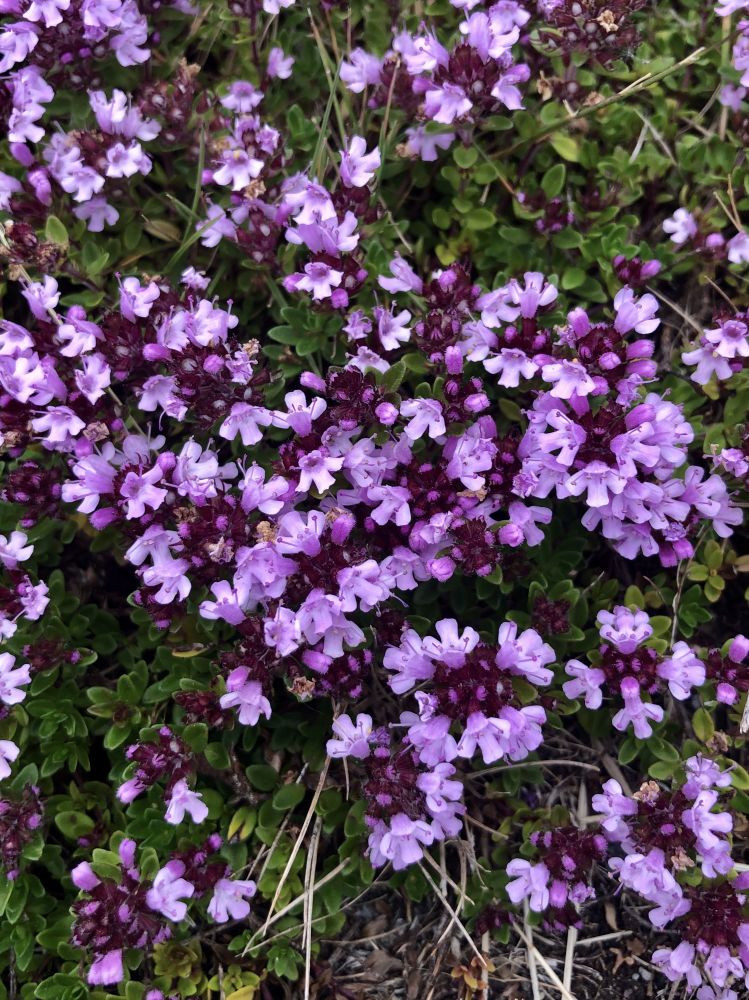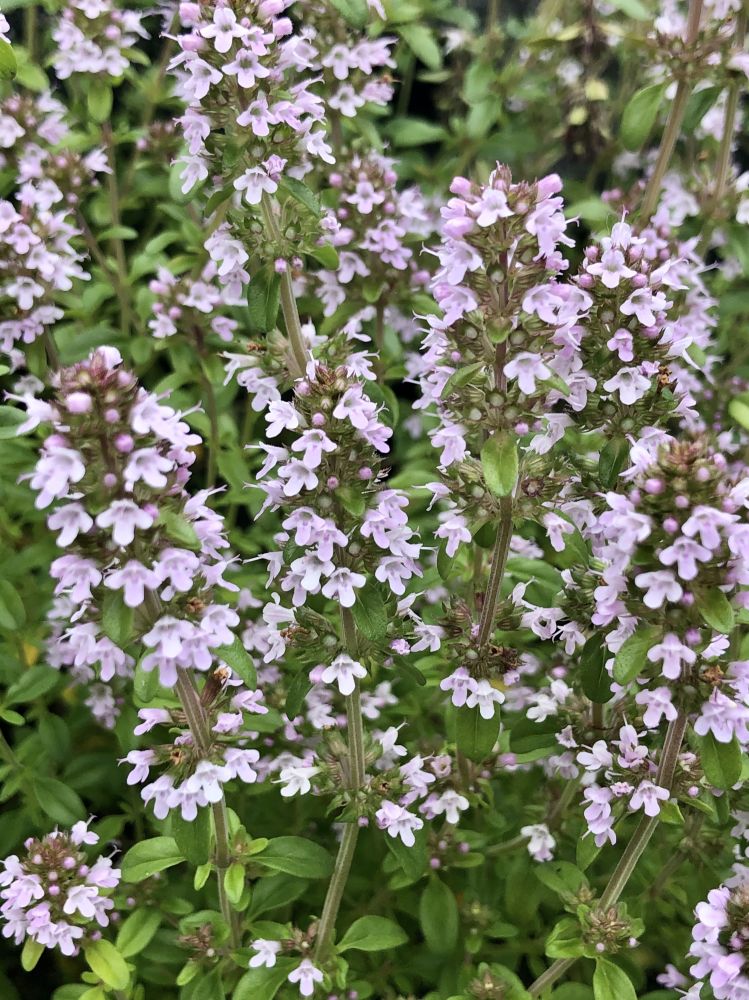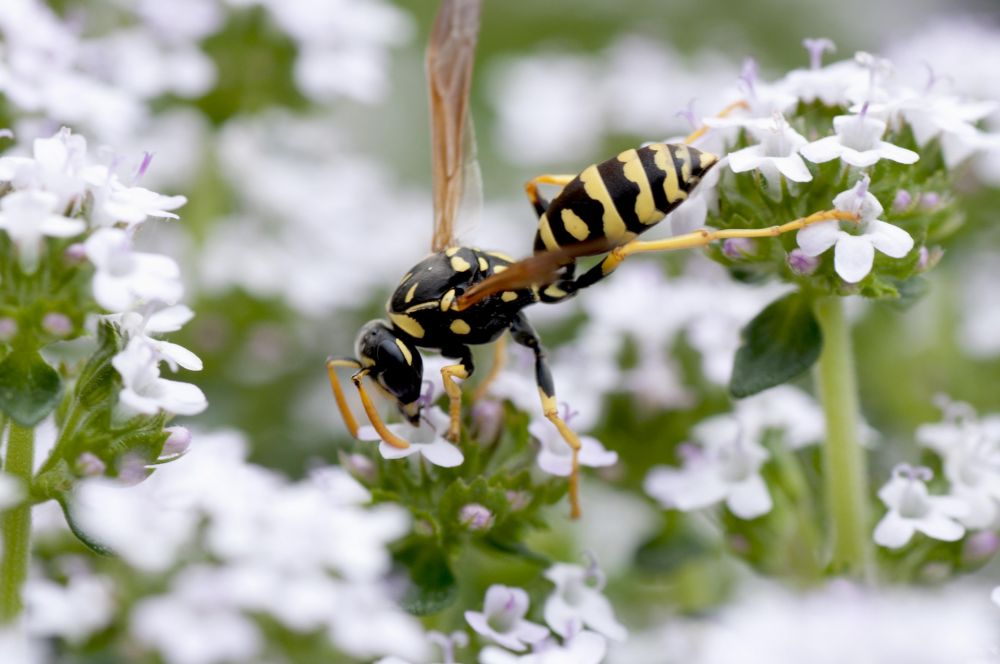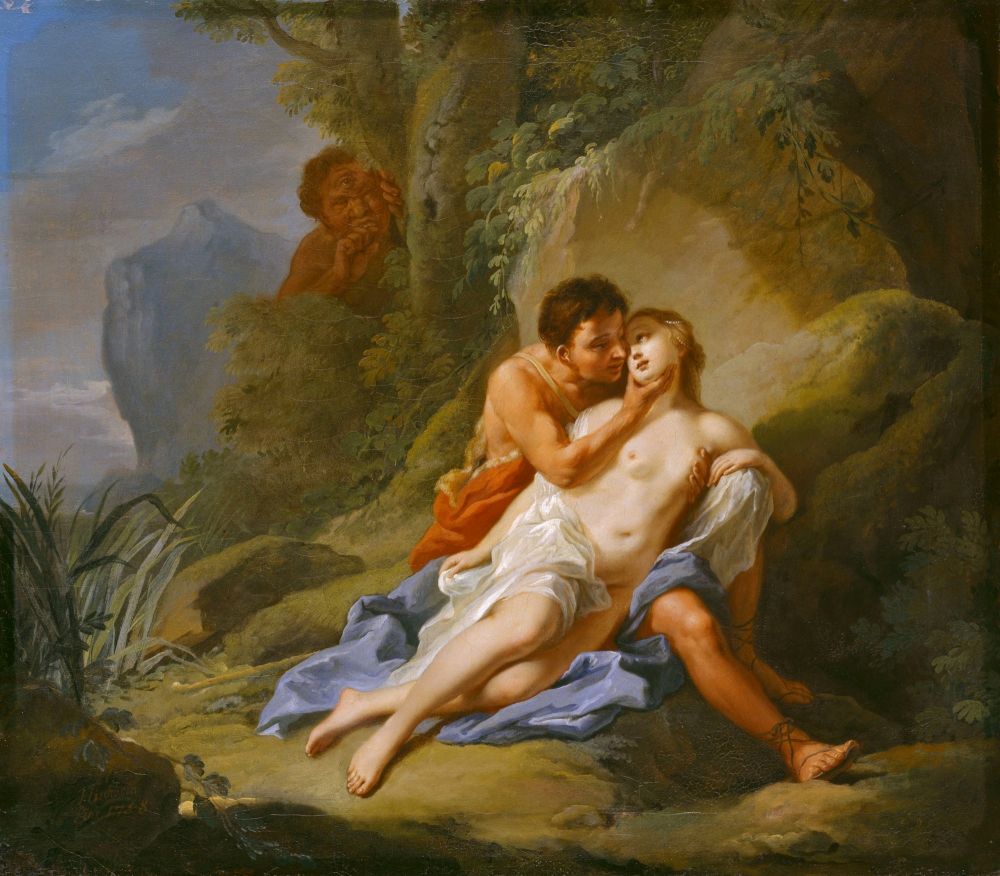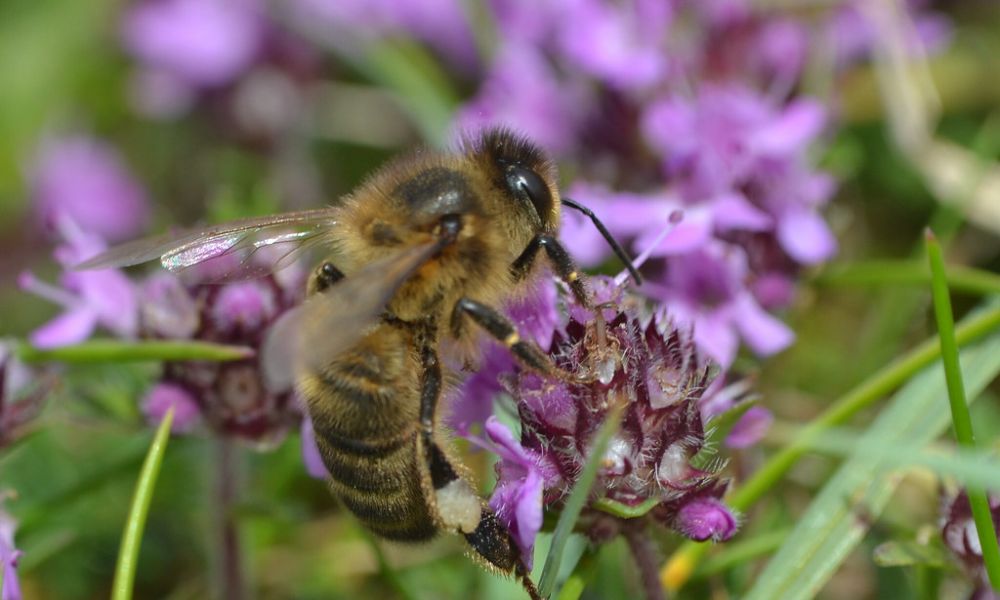正文
(六)不知辛苦为谁甜
戏剧《仲夏夜之梦》里的野百里香(Wild Thyme)即Thymus serpyllum, 具有美丽的粉色或紫色花朵和浓郁的芳香气息。弗朗西斯·培根 (Francis Bacon,1561-1626)曾经说过,您应该在花园小径上种上 芬芳的花朵,如“地榆(burnet)、野百里香和水薄荷(watermints)”, 当“这些植物被踩踏碾碎时”,“空气中散发着愉悦的气味”(being trodden upon and crushed”“perfume the air most delightfully”)。
古罗马人用野百里香来治疗忧郁和神经紧张,有不少现代读者以为莎士 比亚最喜爱的野百里香与古罗马诗人维吉尔笔下的百里香是同一个品种。 其实不然,维吉尔在《牧歌》(Eclogues )和《农事诗》(Georgics) 里提到的百里香是意大利分布最广的普通百里香(common thyme , 学名Thymus vulgaris ), 它不如野百里香芬芳,但味道比野百里香略为辛辣。
百里香是地中海地区一种重要的蜜源植物,人们常常在果园里将百里香作
为地被植物,以吸引蜜蜂来给果树授粉。
《牧歌》中有几处提到了百里香:
第二卷:
科瑞东:
“喔,残酷的亚历克西斯,难道你不在意我的歌吗?难懂你对我豪无仁
慈,最终将我逼死?现在连牛都躲在了清凉的树荫里,连那绿蜥蜴都
躲在了灌木丛里, 连特丝提力丝都在为炎暑中收割的人捣她的芬芳
的野蒜和百里香。而当我追寻着你的足迹,炙热太阳下的那一小片丛
林以尖锐的蝉声重复着我的声音。也许忍受阿玛莉丝的怒气和侮慢更
好吧?也许梅纳卡斯也不错?尽管他黑了一些,而你的肌肤如雪。可爱
的少年啊,不要过分自信你的容貌。白色的女贞花飘落后,暗色的风信
子才被采收。”
( “O cruel Alexis, care you naught for my songs? Have you no pity for me? You will drive me at last to death. Now even the cattle court the cool shade; now even the green lizards hide in the brakes, and Thestylis pounds for the reapers, spent with the scorching heat, her savoury herbs of garlic and thyme. But as I track your footprints, the copses under the burning sun echo my voice with that of the shrill cicadas. Was it not better to brook Amaryllis’ sullen rage and scornful disdain? or Menalcas, though he was dark and you are fair? Ah, lovely boy, trust not too much to your bloom! The white privets fall, the dark hyacinths are culled!)
我曾在之前的读书笔记中提过,古希腊人与罗马人的颜色感与现代人是不 一样的。他们用dark来形容暗色或较深的颜色。我根据他们对颜色的认知, 翻译诗文时将梅纳卡斯的肤色形容为“黑一些” (相较于肌肤如雪的少年), 风信子的颜色是“暗色”的,而不是“黑色”,因为世界上没有黑色的 风信子。
第四卷:
梅纳卡斯 :
“容光焕发的达佛涅斯(注:希腊神话中的牧神)惊叹于陌生的天堂门槛,
凝视着脚下的云朵和星辰。森林、乡野、牧神、牧羊人和林中仙女都沉浸
在喜悦中。狼不再伏击羊群,罗网不再捕猎公鹿,善良的达佛涅斯热爱和
平。 林木繁茂的山峦对着星星欢呼,岩石和树林齐声歌唱:‘梅纳卡斯,
他就是神。’对自己的人要仁慈和恩赐!看,这儿有四座神坛, 两座为你,
达佛涅斯。两座供奉菲伯斯(注:太阳神阿波罗)。每年为你供上两盅泛沫
的鲜奶和两碗浓浓的橄榄油。 寒冬在壁炉前精心地摆上酒宴,丰收时节在
树荫下用高脚杯倒出凯恩酒的琼浆。达摩塔斯和吕克图斯的艾供将为我歌
唱,阿菲西伯尔斯模仿萨蒂尔的舞蹈。
这些仪式将永远属于你们,无论是我们每年向仙女们起誓,还是洁净田野时。 只要野猪喜欢山顶,只要鱼儿喜欢溪流,只要蜜蜂以百里香为食,只要蝉以 露水为食 — 你们的名誉,荣誉和荣耀就将持续下去。年复一年,只要农 人们向你、 巴克科斯(注:酒神)和色列斯(注:谷物女神)起誓, 你们就应该答应他们的请求。”
MENALCAS
(“Daphnis, in radiant beauty, marvels at Heaven’s unfamiliar threshold, and beneath his feet beholds the clouds and stars. Therefore frolic glee seizes the woods and all the countryside, and Pan, and the shepherds, and the Dryad maids. The wolf plans no ambush for the flock, and nets no snare for the stag; kindly Daphnis loves peace. The very mountains, with woods unshorn, joyously fling their voices starward; the very rocks, the very groves ring out the song: ‘A god is he, a god, Menalcas!’ Be kind and gracious to your own! Lo here are four altars – two, see, for you, Daphnis; two for Phoebus! Two cups, foaming with fresh milk, will I year by year set up for you, and two bowls of rich olive oil; and, for my chief care, making the feast merry with wine – in winter, before the hearth; in harvest time, in the shade – I will pour from goblets fresh nectar of Chian wine. Damoetas and Lyctian Aegon shall sing for me, and Alphesiboeus mimic the dance of Satyrs.
“These rites shall be yours for ever, both when we pay our yearly vows to the Nymphs, and when we purify our fields. So long as the boar loves the mountaintops, and the fish the streams; so long as the bees feed on thyme and the cicadas on dew – so long shall your honour, name, and glory abide. As to Bacchus and Ceres, so to you, year after year, shall the husbandmen pay their vows; you, too, shall hold them to their vows.”)
以上诗文中的凯恩葡萄酒(Chian wine)产于希腊的希俄斯岛(Chios), 是古希腊的第一个红葡萄,也是最珍贵的葡萄酒)。萨蒂尔(Satyr)即 希腊传说中半人半兽的森林之神,长有公羊角和尾巴的怪物。他们是酒神 狄俄尼索斯的同伴,爱好酒、音乐、舞蹈和女人。他们经常试图引诱或强奸 森林女妖和凡人妇女,但收效甚微。
第七卷:
科瑞东:
“卡拉蒂,涅柔斯 (注:海神)的孩子,对我来说,比海布拉(注:古意 大利西西里岛的一个城市)的百里香还要香甜,比天鹅还要洁白, 比淡色的藤蔓还要可爱,等到公牛们从牧场回到棚圈, 若你爱着科瑞东, 就来找我吧”。
(CORYDON
Galatea, child of Nereus, sweeter to me than Hybla’s thyme,
whiter than the swan, lovelier than pale ivy, as soon as the
bulls come back from pasture to the stalls, if you have any
love for your Corydon, come to me!)
《牧歌》里的科瑞东是个牧羊人,正疯狂地迷恋着美少男亚历克西斯,他 以歌传情,盼望在一天的辛苦放牧之后,心上人能主动与他相会。他在歌 词里把心上人比作了海神最美丽的女儿卡拉蒂。希腊神话中,卡拉蒂与西 西里岛上的牧羊少年埃西斯(Acis)相爱。岛上的最著名的独眼巨人波利夫 莫斯(Polyphemus)对美丽的卡拉蒂一见钟情,整日痴坐在岸边,对着海底 心爱的女神又吹笛子又唱情歌。当他发现卡拉蒂为了一个牧羊人竟然拒绝了 他的求爱,恼羞成怒,拿起一块大石头砸到埃西斯身上,顿时鲜血直流。伤 心的卡拉蒂把埃西斯变成一条河,取名“埃西斯河” (Acis river)。

维吉尔熟悉各种农事,对养蜂有着浓厚的兴趣和广博的知识。《农事诗》的 第四卷为养蜂篇,有几处提及了百里香。该卷的开篇讲述的是如何为蜜蜂 选择一个安全舒适的家,提到一句:“尽心让苍翠的蜡叶芫花绽放,让野 百里香的芬芳远扬,浓香的薄荷一片繁茂,紫香堇啜饮滴滴甘泉” (All about let green cassia bloom, and wild thyme with fragrance far borne, and a wealth of strong-scented savory; and let violet beds drink of the trickling spring.)。百里香、香薄荷与紫香堇都是 矮小的草本蜜源植物,对蜜蜂有着致命的吸引力。
诗人还写到:“ 但是当这群蜂漫无目的飞来飞去,在空中玩耍,对它们的
巢穴置之不理并使蜂箱变冷时,你必须制止它们在这种懒散游戏中的飘忽
的性情。制止它们并非难事。你从君主身上撕下翅膀吗?当它们拖延时间时,
没有人敢出去飘在高处,或者敢于从营地里挑出标准。且让花园里芬芳的
番红花来邀请它们,让守望者对付小偷和小鸟,让监护神普里阿普斯,
赫勒斯蓬特(注:古语,即达达尼尔海峡)的君王用他的柳叶钩来保护
它们。由他来照顾,他从高山上带来百里香和地中海荚蒾,广泛种植在
它们的家四周。他的手因辛苦劳作而变硬。他在地上种上繁茂的栽子,
并轻柔地洒水”。
(But when the swarms flit aimlessly and sport in the air, scorning their cells and leaving their hives chill, you must check their fickle spirit from such idle play. No hard task is it to check them. Do you tear from the monarchs their wings; while they tarry, no one will dare to go forth aloft, or pluck the standards from the camp. Let there by gardens fragrant with saffron flowers to invite them, and let the watchmen against thieves and birds, guardian Priapus, lord of the Hellespont, protect them with his willow hook. Let him to whom such care falls, himself bring thyme and laurestines from the high hills, and plant them widely round their homes; himself harden his hand with stern toil; himself plant in the ground fruitful slips and sprinkle kindly showers.)
文中的普里阿普斯是希腊神话中的生殖之神,他是酒神狄俄尼索斯和爱神阿
佛洛狄忒之子,拥有一个巨大、永久勃起的阳具。他是家畜、园艺、果树、
蜜蜂的保护神。维吉尔指出,在蜂房附近广泛栽植百里香和地中海荚蒾
这两种蜜源植物有助于引导蜜蜂回巢,重新回到有秩序的生活状态。
得益于意大利优美的自然环境和田园风光,“芬芳的蜂蜜因百里香而 香甜”(the fragrant honey is sweet with thyme),蜜蜂忙忙 碌碌了一整天,“到了深夜,年轻的蜜蜂的大腿上装满了百里香, 疲倦地回到家中 ”。(But the young betake them home in weariness, late at night, their thighs freighted with thyme;),蜂群除了 给养蜂人带来口福,还带来了一份热闹和对美好生活的憧憬。
古欧洲人以为蜜像露水一样从天而降,落在植物的花和叶子上,被蜜蜂
采集,而且蜜蜡也是直接从植物上取得的。因此他们认为蜜蜂是神圣的,
它们的产品是神灵送给人类的礼物。
在西方文化中,关于蜜蜂的最古老的文学叙述来自荷马诗颂,里面记录 的诸多神话和古老传统早于《伊利亚特》(Iliad)和《奥德赛》 (Odyssey)这两部史诗。蜜蜂在这些作品里是时间和变形(metamorphoses) 的英雄。古希腊人的变形概念,即人由于某种原因被变成动物、植物、 星星、石头等。在他们眼里,蜜蜂的出生、死亡和再生的交替出现, 是宇宙和宗教领域的象征。
在史诗《伊利亚特》中,“……就像蜜蜂从/隐藏的巢穴冲出来,顽强 抵抗/那些猎杀者,为保护自己的婴儿而战。”蜜蜂被视为社会楷模, 它们不会放弃自己的家,并且勇敢地抵抗天敌袭击,为下一代而战。
(英文原文:…like bees that come forth from
Hidden nests, who resist ferociously
Those who hunt them, and who fight to protect their infants.)
到了古罗马时代,蜂巢被视为人类社会的一种良好政治模式 ,蜜蜂们的
遵纪守法、高效有序、分工严明、辛勤劳动等特点值得人类借鉴。
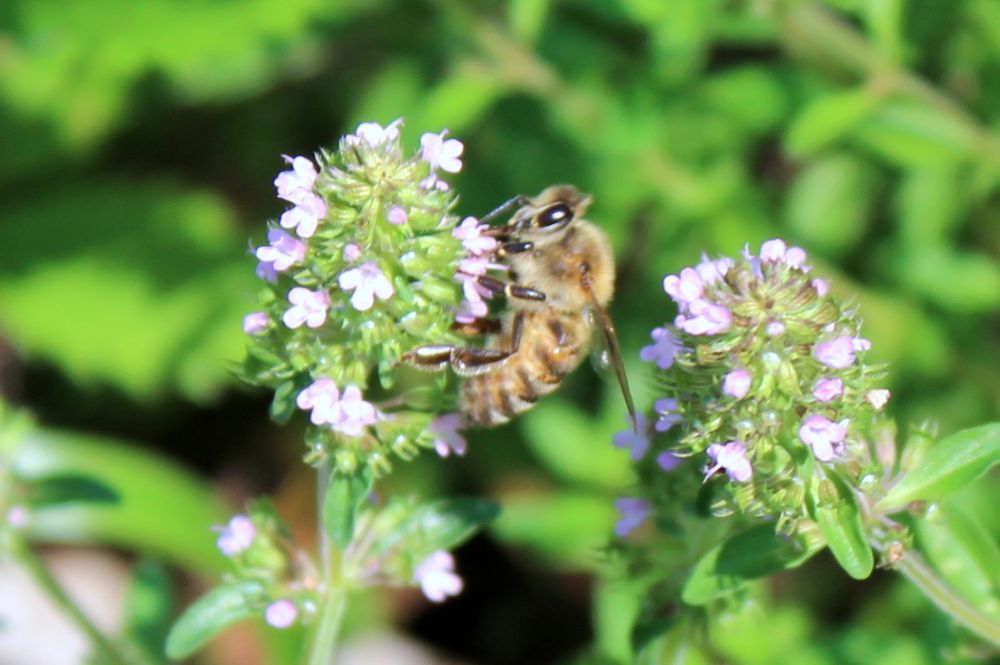
评论
目前还没有任何评论
登录后才可评论.




